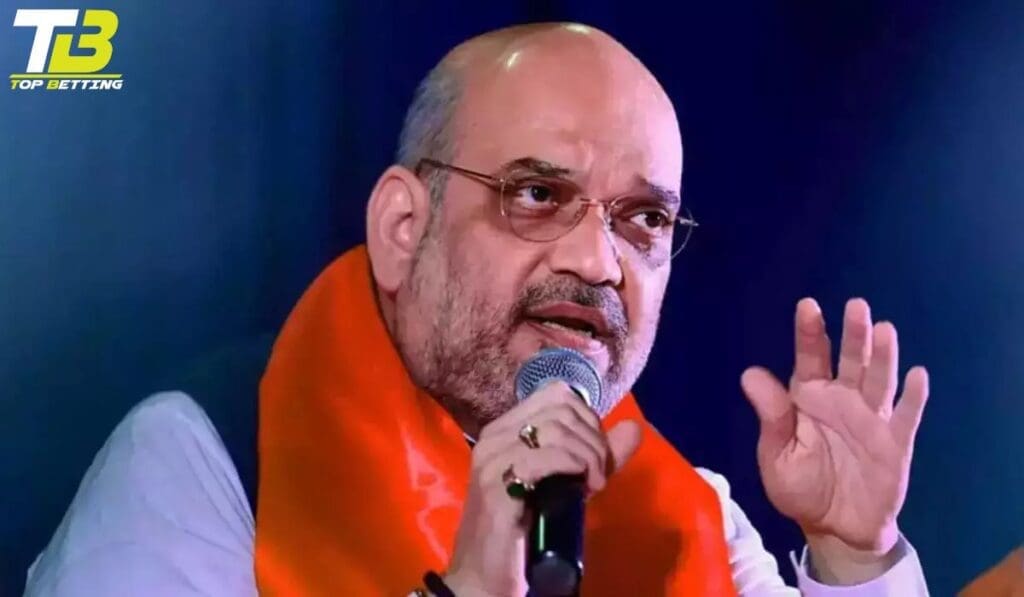
One Nation, One Election to Be Implemented Next Term | Amit
In a recent wide-ranging interview, Union Home Minister Amit Shah outlined the Bharatiya Janata Party’s (BJP) ambitious plans for the next term, should the party return to power. At the forefront of this agenda are two key initiatives – the implementation of a Uniform Civil Code (UCC) and the realization of ‘One Nation, One Election‘. Shah’s unwavering commitment to these transformative reforms underscores the BJP’s resolute vision for a more unified and streamlined India.
Uniform Civil Code: A Unifying Legal Framework
Amit Shah has firmly stated that the BJP aims to implement a Uniform Civil Code across the country within the next five years. This long-standing promise, rooted in the party’s ideology, is seen as a crucial step towards achieving true gender equality and social cohesion.
Origins of the UCC Debate
The idea of a Uniform Civil Code has been part of the BJP’s agenda since the 1950s, with the party’s manifesto for the ongoing Lok Sabha polls reiterating its stance. Shah noted that the Constituent Assembly had envisioned the UCC as one of the guiding principles for the nation, with legal luminaries like K.M. Munshi, Rajendra Prasad, and Dr. B.R. Ambedkar advocating for a unified legal framework that transcends religious divisions.
Navigating the Challenges
The Home Minister acknowledged the complexities and sensitivities surrounding the UCC, recognizing the need for extensive consultations and debates. He emphasized that any model law would need to harmonize the best traditions with modern realities, while also addressing the concerns of various stakeholders.
The Path Forward
Shah expressed confidence that the UCC can be implemented within the next five years, stating that this timeframe is sufficient for the necessary discussions and legislative processes. The BJP’s manifesto has reiterated its commitment to the UCC, positioning it as a crucial step towards achieving gender equality and upholding the secular principles enshrined in the Constitution.
‘One Nation, One Election’: Streamlining the Electoral Process
Alongside the Uniform Civil Code, Amit Shah has also outlined the BJP’s intention to implement the ‘One Nation, One Election’ initiative in its next term, should the party return to power.
The Rationale for Simultaneous Elections
Shah argued that the time has come for the country to hold simultaneous elections at all levels, noting that this would not only reduce the financial burden but also enhance governance and policy continuity. The Prime Minister had earlier constituted a high-powered committee to examine the feasibility and implementation of this proposal.
Potential Benefits and Challenges
The Home Minister acknowledged the possibility of moving election schedules to a more favorable time of the year, such as the winter or a period when schools are on vacation, to mitigate the logistical challenges posed by the current summer timeframe. However, he emphasized that any such changes would require careful consideration and consensus-building.
The BJP’s Commitment
The party’s manifesto has explicitly stated the BJP’s resolve to work towards the implementation of ‘One Nation, One Election’ during its next term, drawing on the recommendations of the committee set up by the Prime Minister. Shah reiterated that this initiative will be a key focus area for the government, should the BJP secure a renewed mandate.
Gains in Opposition-Ruled States
Shah expressed optimism about the BJP’s prospects in several opposition-ruled states, including West Bengal, Odisha, and Andhra Pradesh. He claimed that the party’s alliance will secure a significant number of seats in these regions, with the BJP also eyeing a maiden majority in the Odisha Legislative Assembly.
Addressing the Opposition’s Concerns
The Home Minister dismissed the opposition’s criticism of the Election Commission’s handling of the electoral process, asserting that similar protocols and practices have been followed in previous state elections where the BJP has lost. He accused the opposition of attempting to “cover up” their impending defeat by raising questions about the integrity of the electoral system.
Welfare, Security, and Ideological Priorities
Amit Shah attributed the BJP’s anticipated electoral success to the party’s ability to translate Prime Minister Modi’s popularity into tangible gains, particularly in the areas of welfare, national security, and the fulfillment of the party’s core ideological agenda.

Conclusion
Amit Shah’s articulation of the BJP’s ambitious plans for the next term, should the party return to power, underscores the party’s unwavering commitment to transformative reforms and the realization of its ideological vision. The implementation of a Uniform Civil Code and the realization of ‘One Nation, One Election’ represent the BJP’s determination to reshape India’s legal and electoral landscape, while the party’s projected electoral success reflects its confidence in the continued appeal of Prime Minister Modi’s leadership and the party’s ability to deliver on its core promises.











